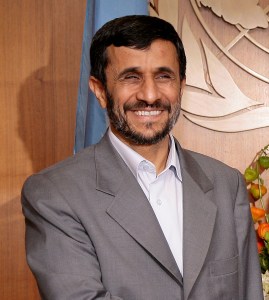 What’s a broker to do when he finds himself in the pay of Tehran?
What’s a broker to do when he finds himself in the pay of Tehran?
That’s the question now facing real estate brokerage Jones Lang LaSalle, following the revelation that a skyscraper in New York’s most exclusive office market belongs to a shell company that, in turn, belongs to the Iranian regime, according to a Nov. 12 complaint filed by the U.S. attorney for the Southern District.
Jones Lang LaSalle, you see, handles the leasing for the building, 650 Fifth Avenue, according to real estate database CoStar. And Jones Lang LaSalle, which declined to comment for this story, has not denied it. (It should be noted, the building’s provenance has been an open secret in New York real estate for decades. “I remember, in ’79, thinking to myself, ‘Gosh, what’s going to happen now that the Revolutionary Guard owns the building?’” recalled Ira Schuman, an executive vice president at Studley, referring to the overthrow of the Shah that year.)
This raises a couple of prickly questions that it seems most real estate professionals would rather avoid. Namely, in what circumstances should a broker decline to take a client’s money? And, does this constitute such a situation?
We are, after all, talking about a regime that has been all over the press in recent months for, among other things, a highly contested election that reinstalled Mahmoud Ahmadinejad; violence against those who protested the election; and the imprisonment and torture of intellectuals and dissidents. Most recently, Iran has announced the expansion of nuclear activities, prompting even Russia to call for renewed sanctions.
This is not the first time these sorts of questions have arisen in New York real estate, which is home to the United Nations. Indeed, brokers routinely represent countries in their searches for real estate in which to house their New York consulates and U.N. missions.
NAI Global executive managing director Gil Robinov, for one, personally helped North Korea find its current U.N. Mission at 820 Second Avenue.
“I’m not happy to represent some of them, like Iran and North Korea, which the U.S. doesn’t always have friendly relations with,” Mr. Robinov said. “But I feel like I have a responsibility, as an American and as a broker in New York, to help these people.”
“They’re supposed to be in New York, they are members of the United Nations, and we’re the host city.”



